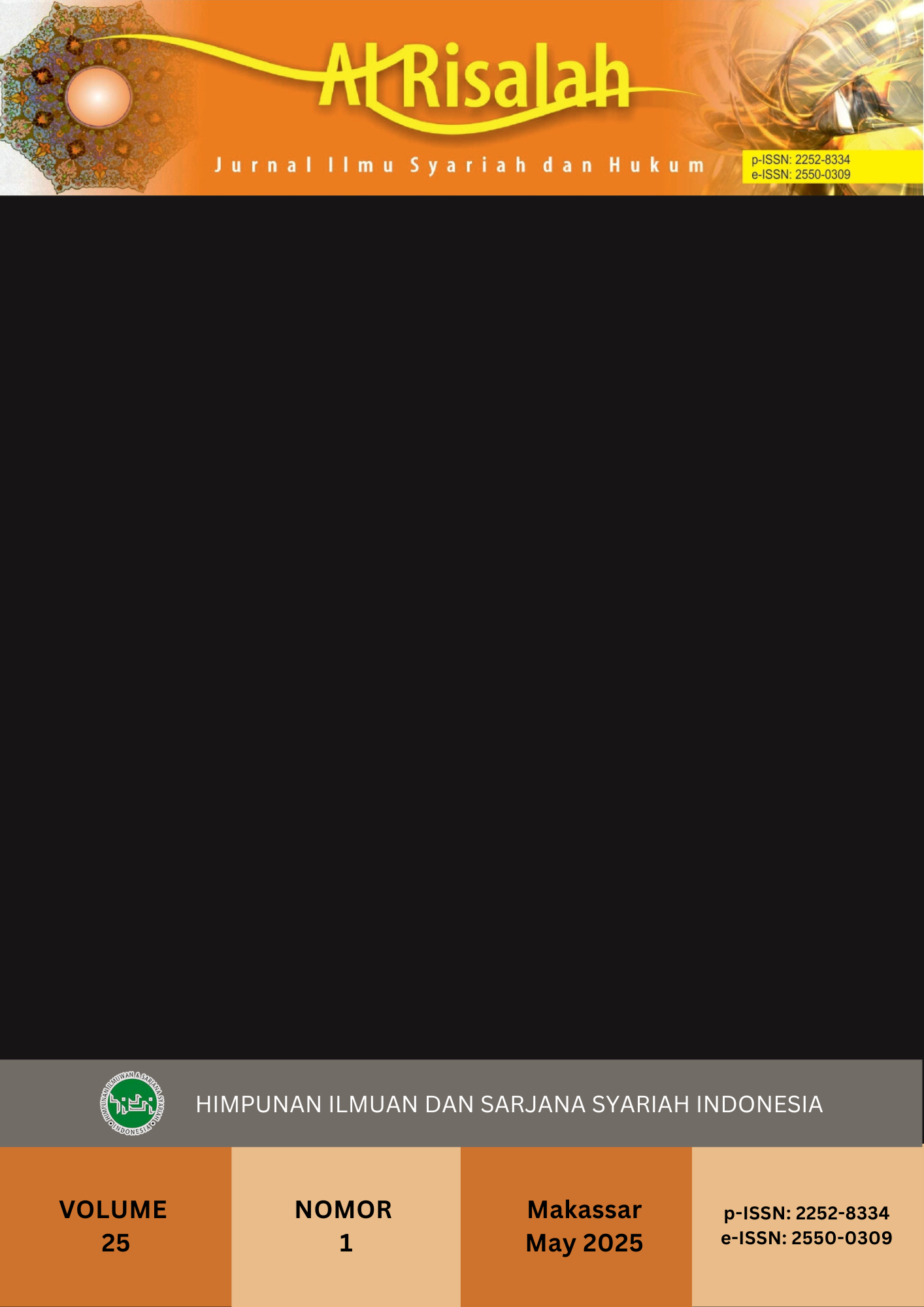Digital Transformation in Marriage Administration: Evaluating the Implementation of SIMKAH at KUA Medan Barat
Abstrak
This study examines the implementation of the Marriage Management Information System (SIMKAH) at KUA Medan Barat, focusing on its effectiveness in modernizing marriage registration and administration. The research identifies key challenges in the system’s application and evaluates the extent to which SIMKAH complies with regulatory frameworks, particularly the Instruction of the Director General of Islamic Community Guidance No. DJ.II/369 of 2013 and KMA RI No. 829 of 2019. A qualitative approach was employed, utilizing case study research at KUA Medan Barat. Data were collected through interviews with KUA officials, document analysis, and direct observation of SIMKAH’s operational processes. The study also examined regulatory documents and technical guidelines to assess the system’s implementation. Findings indicate that while SIMKAH has successfully standardized and digitized marriage registration, several challenges persist. These include discrepancies in bride and groom data, falsification of divorce certificates, canceled marriage registrations due to family conflicts, and technical issues such as network disruptions. To mitigate these issues, KUA Medan Barat has implemented measures such as stricter document verification, requiring couples to correct discrepancies at civil registration offices, and promoting early registration to avoid last-minute complications. This study contributes to the literature by providing a comprehensive evaluation of SIMKAH’s practical implementation at the local level. Unlike previous research that broadly discusses digitalization in marriage registration, this study offers an in-depth analysis of the specific challenges faced by KUA Medan Barat and proposes practical solutions for improving SIMKAH’s efficiency. The findings highlight the need for continuous improvements in digital marriage registration systems, including enhanced data security measures, better infrastructure to prevent technical disruptions, and more extensive public outreach programs. The study also suggests that future research should explore SIMKAH’s implementation in other regions to develop a more generalized framework for optimizing digital marriage administration in Indonesia.
Referensi
Al Yasa’ Abubakar, M. I. (2019, Januari-Juni). Efektivitas Penerapan SIMKAH di KUA Syiah Kuala. Jurnal Hukum Keluarga dan Hukum Islam, Vol. 3 No. 2.
Aditya, W. S. (2022). Online Implementation of Marriage Management Information. Jurnal Metro Islamic Law Review, Vol. 1 No. 2.
Dwi Runjani Juwita, A. S. (2023). Upaya KUA Kecamatan Takeran Dalam Mengatasi Pemalsuan Data Melalui SIMKAH Web. Jurnal El-Wasathiya, Vol. 11 No. 1.
Dali, Debisintia, Sri Nanang, Meiske Kamba, and Nurul Fazri Elfikri. “Analysis Of The Role Of The Office Of Religious Affairs In Managing The Case Of Siri Marriage Couples.” Estudiante Legal Journal. 4, no. 2 (2022): 157–72. https://doi.org/10.33756/eslaj.v4i2.16252.
Esty Indrasari, Pencatatan perkawinan https://estyindra.weebly.com/mkn-journal/pencatatan-perkawinan (diakses pada tanggal 01 November 2024 pukul 20.50)
Faishol, I. (2019, Desember). Pencatatan Perkawinan Dalam Hukum Kekeluargaan Di Indonesia. Jurnal Ulumul Syar'i, Vol 8, hlm 12.
Farabi, Al. “The State Penghulu vs The Non-State Penghulu: The Validity and Implementing Authorities of Indonesian Marriage.” Justicia Islamica 17, no. 2 (2020): 343–64. https://doi.org/10.21154/justicia.v17i2.2180.
Fuady, M. (2014). Teori-Teori Besar "Grand Theory" dalam Hukum. Jakarta: Kencana Prenada Media Group.
https://indonesiabaik.id/infografis/inilah-keunggulan-simkah-web (diakses pada tanggal 19 November 2024 pukul 23.51)
Kementerian Agama Republik Indonesia, Petunjuk Teknis Pengoperasian Sistem Informasi Manajemen Nikah Berbasis Web (SIMKAH WEB), hlm. 1
Mardani. (2016). Hukum Keluarga Islam di Indonesia. Jakarta: Kencana.
Masril Halomoan Hrp, interview with the Head of KUA of West Medan, 30 October 2024.
Maulid, interview with KUA Medan Barat Operator, 30 October 2024.
Muhammad Zain, M. A. (2005). Membangun Keluarga Humanis Counter Legal Draft Kompilasi Hukum Islam yang Kontroversial itu. Jakarta: Grahacipta.
Nasution, K. (2012). Hukum Perkawinan dan Warisan di Dunia Muslim Modern. Yogyakarta: Academia.
Peraturan Menteri Agama Nomor 20 Tahun 2019 tentang Pencatatan Pernikahan.
Rifki Dimas Agustin, A. S. (2024, Februari). Implementasi Sistem Informasi Manajemen Nikah (SIMKAH) Dalam Meningkatkan Kualitas Pelayanan Dan Informasi Pada Masyarakat Di KUA Kecamatan Jatiuwung Kota Tangerang. Jurnal Ilmiah Wahana Pendidikan, Vol.10 No. 4.
Riyadi, F. (2018). Efektivitas Penerapan Sistem Informasi Manajemen Nikah (SIMKAH) Dalam Implementasi Undang-undang Nomor 24 Tahun 2013 di KUA Kecamatan Mejobo. Jurnal Hukum Keluarga dan Hukum Islam, Vol. 9 No. 2.
Susanto, H. (2007). Nikah Siri Apa Untungnya? Jakarta: Visimedia.
Tarigan, I. J. (2017). Peran Badan Narkotika Nasional dengan Organisasi Sosial Kemasyarakatan dalam Penanganan Pelaku Penyalahgunaan Narkotika. Yogyakarta: Deepublish.
Turnip, I. R. (2021). Hukum Perdata Islam di Indinesia Studi tentang Hukum Perkawinan, Kewarisan, Wasiat, Hibah, dan Perwakafan. Depok: Rajawali Pers.
Undang-undang Nomor 24 Tahun 2013 Tentang Perubahan atas Undang-undang Nomor 23 Tahun 2006 tentang Administrasi Kependudukan.
##submission.copyrightStatement##
##submission.license.cc.by4.footer##

